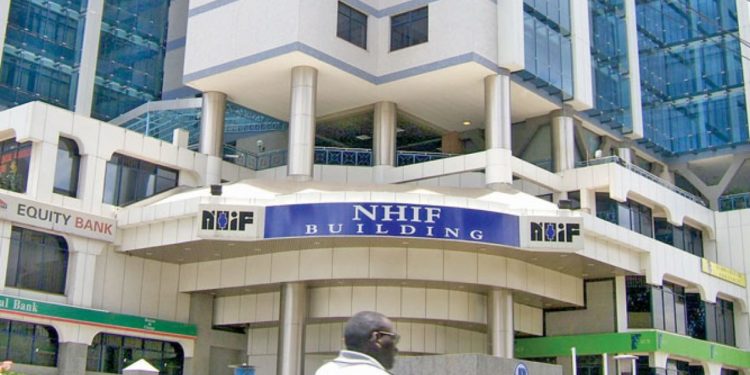The National Hospital Insurance Fund (NHIF) wants employees earning more than Ksh100,000 to contribute 1.7 percent of their gross salary to the fund. These laws were previously issued but were rejected by Parliament before the general election on August 9.
The NHIF has brought back a controversial rule that will require anyone earning more than Ksh100,000 per month to pay higher monthly contributions, putting extra financial pressure on both employees and employers.
Before seeking parliamentary approval for the new rates, the fund is soliciting community feedback on the new regulations, which are backed by President William Ruto.
By switching to the new premium, employers would no longer require employees earning above Ksh100,000 to make a Ksh1,700 monthly contribution to the NHIF.
Read: NHIF CEO , Board Clash Over Schools’ Health Insurance
After Parliament rejected the proposal to raise the monthly contributions, the public health insurance gave up its effort to have the highest earnings contribute more in August.
Weeks after President Ruto approved the idea of having the wealthy pay higher monthly premiums to the NHIF, there has been a renewed push for the high rates.
Upon adoption of the laws, the monthly contributions for employees earning Ksh200,000 will climb by a factor of two to Ksh3,400, while those earning Ksh500,000 will see a five-fold increase to Ksh8,500.
NHIF Abandons Plan To Increase Monthly Contributions For Employees
“We offered the 1.7 percent rate, which we believe is fair and equitable, and we still stand by that. However, Parliament—not we—removed it. The 1.7 percent would stay if we had a choice, but we’re going to fight for it,” Peter Kamunyo, the CEO of the NHIF, stated.
Employers and employees, who are already under stress from inflationary pressures, are likely to oppose the increase in NHIF contributions.
Email your news TIPS to editor@thesharpdaily.com











